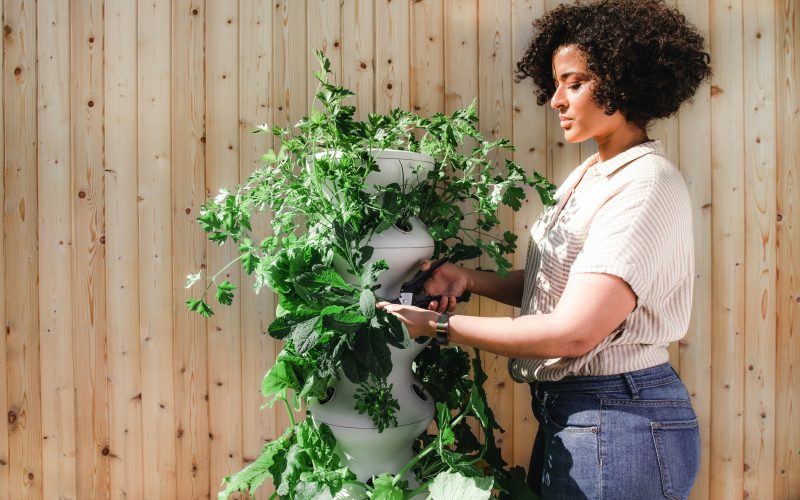Introduction
Are you feeling stressed, anxious, or overwhelmed? Do you find yourself struggling to cope with the challenges of daily life? If so, garden therapy might be just what you need. Studies have shown that spending time in nature and tending to a garden can have powerful benefits for your mental health. From reducing stress and anxiety to improving mood and boosting self-esteem, gardening is a natural way to promote wellness and healing. In this guide, we’ll explore the many benefits of garden therapy and give you tips on how to get started with your own therapeutic gardening practice.
The Benefits of Gardening for Mental Health
Gardening has long been known to be a therapeutic and calming activity, but it’s only recently that research has shown the extent of its mental health benefits. Firstly, gardening is an excellent way to reduce stress levels since it allows you to disconnect from technology and focus on something real instead.
Moreover, getting your hands dirty in the garden also increases physical activity which triggers endorphins – the feel-good hormones that promote positivity and happiness. This can help alleviate symptoms of depression and anxiety.
A significant benefit of gardening for mental health is its ability to improve self-esteem and confidence levels by providing a sense of accomplishment when plants grow successfully or even just when weeds are removed. Additionally, being surrounded by greenery has a calming effect on the mind while promoting relaxation.
Spending time outdoors under natural light is essential for regulating circadian rhythms in our bodies which affect our sleep patterns significantly. Gardening provides numerous mental health benefits that make it an ideal therapy option for anyone struggling with anxiety or depression symptoms.
The Different Types of Garden Therapy
Gardening is a versatile activity that can be adapted to suit different individuals and their unique mental health needs. Depending on your preferences, you may find one or more types of garden therapy particularly helpful.
Horticultural Therapy involves using plants and gardening activities to promote physical, cognitive, emotional and social well-being. This type of therapy is often used in clinical settings under the supervision of a trained therapist.
Sensory Garden Therapy emphasizes the use of plants, textures, colors, scents and sounds to engage our senses and promote relaxation. Sensory gardens are designed to stimulate our sensory experiences through touch, sight, taste, smell or hearing.
Ecotherapy focuses on connecting with nature as a means of improving mental health. It involves outdoor activities such as nature walks or hikes in green environments like parks or forests.
Therapeutic Landscape Design refers to designing outdoor spaces for therapeutic purposes based on principles from horticulture therapy and Ecotherapy. These designs aim at improving physical fitness while reducing stress levels by creating peaceful spaces amidst natural elements like trees and water bodies.
In summary
These are just some examples of Garden therapies you can try out depending on your symptoms goals. By engaging with nature in this way we hope it will positively impact your overall wellbeing!
The Tools You’ll Need to Start Gardening
Starting a garden is an exciting venture that can do wonders for your mental health. To get started, you’ll need to gather the necessary tools and supplies. Here are some essentials you should consider:
Firstly, choose the right type of soil for your plants. Different plants require different types of soil, so it’s important to research what will work best for what you want to grow.
Next up, invest in quality gardening gloves and hand tools such as trowels, shovels, and pruners. These will help protect your hands from getting blisters or cuts while working on your garden.
Don’t forget about watering equipment too! A hose with an adjustable nozzle or a watering can will make sure that your new green friends stay hydrated throughout their growth journey.
If you plan on starting seeds indoors before transplanting them outside later on, then investing in plant trays and pots would be a wise choice.
Consider using organic fertilizers instead of chemical ones to promote healthy plant growth without harming the environment around us.
Having these essential tools ready before beginning any gardening project is crucial for success. Happy planting!
Conclusion
Garden therapy is a powerful tool that can help improve your mental health and overall wellbeing. By spending time in nature, tending to plants and soil, and connecting with the natural world around you, you can reduce stress levels, boost your mood, increase feelings of happiness and relaxation, and even alleviate symptoms of anxiety and depression.
Whether you have a large backyard or just a small balcony or windowsill to work with, there are many different types of garden therapy activities that you can try. So why not pick up some tools today and start cultivating your own little slice of paradise? Your mind (and body) will thank you for it!











